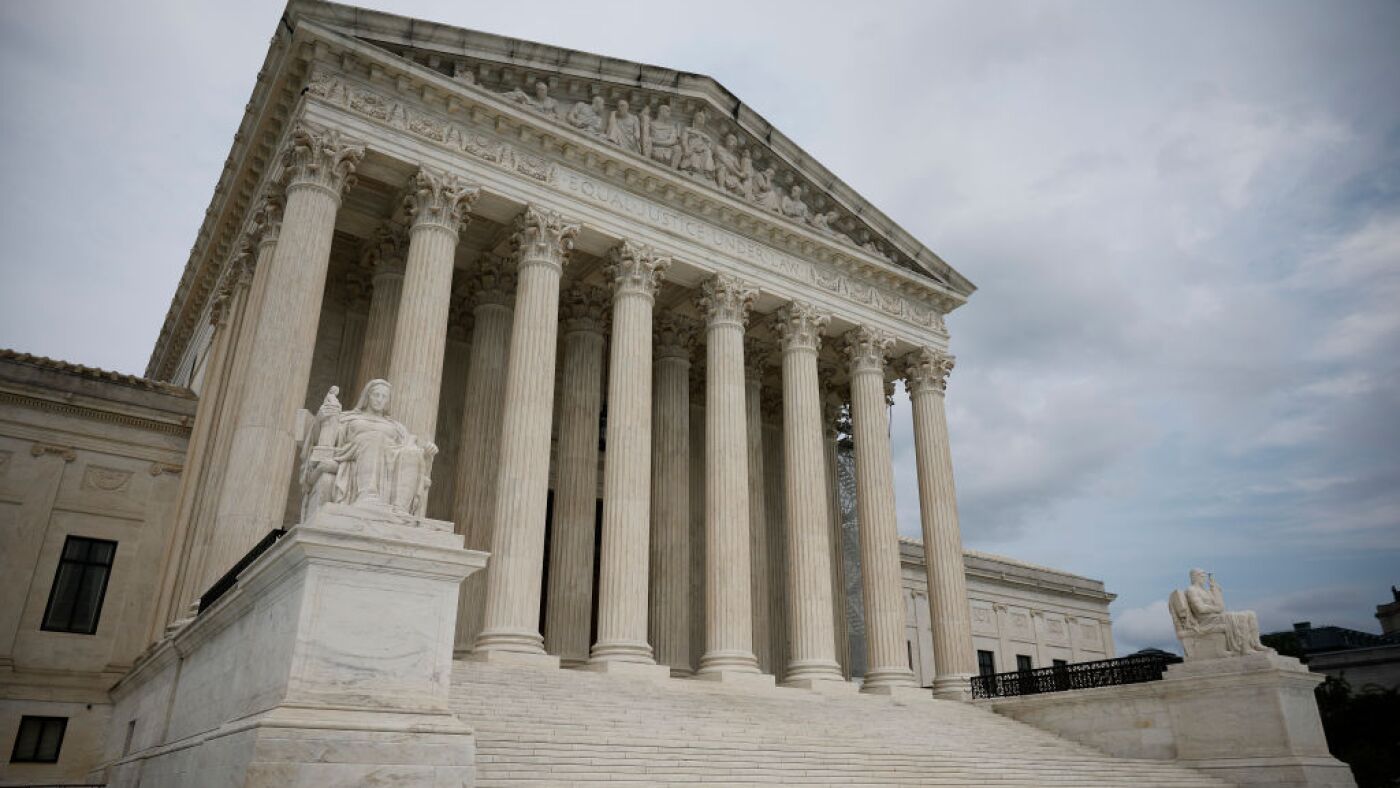The U.S. Supreme Court agreed to partially limit two lower-court orders that had previously blocked the Biden administration’s new rules barring sex discrimination in schools that get federal aid.
Kevin Dietsch/Getty Images
hide caption
toggle caption
Kevin Dietsch/Getty Images
The U.S. Supreme Court refused on Friday to partially limit two lower-court orders that blocked the Biden administration’s new rules barring sex discrimination in schools that get federal aid.
The court’s action effectively bars the federal government from enforcing any portion of its new anti-discrimination rules while legal challenges involving protections for transgender students are litigated in the lower courts. Justices Neil Gorsuch joined the court’s three liberals to note their disagreement, and would have allowed the unchallenged provisions of the rules package to go into effect, as scheduled, Aug. 1.
The legal dispute involves Department of Education rule changes that are aimed at bolstering protections for students and employees under the federal law banning sex-based discrimination in any school or other education program that receives federal funding. While the rule changes include many uncontroversial provisions, two federal judges, one in Louisiana, the other in Kentucky, issued broad decisions that blocked the entire rules package from taking effect in ten states, largely because of three provisions aimed at protecting transgender students.
That, in turn, prompted Solicitor General Elizabeth Prelogar to ask the Supreme Court to unblock those rules that are not being challenged, while the transgender provisions are litigated in the lower courts.
“The lower court’s blunderbuss approach…is both wrong and consequential,” she said, adding that many unchallenged provisions of the new Title IX rules should be implemented immediately.
At the same time, she emphasized that the government is not asking the high court to allow the transgender provisions to take effect until the legal challenges to those provisions are resolved, and she acknowledged that resolution may ultimately be made by the Supreme Court itself.
“Those provisions raise important issues that will be litigated on appeal and that may well require this court’s resolution in the ordinary course,” she wrote.
But in the meantime, Prelogar said, the Department of Education should not be barred “from implementing dozens of provisions” that are not being challenged, including on how schools should handle sexual harassment allegations and how schools should protect pregnant students and employees.
The Supreme court, however, refused to intervene, leaving the full scope of the lower courts’ injunctions in place, and the new rules unenforceable in ten states covered by the lower court orders. Justices Gorsuch, Elena Kagan, Sonia Sotomayor and Ketanji Brown Jackson noted their dissent; they would have allowed the uncontested provisions to take effect immediately.
Supporters of the Supreme Court’s order, including the states that filed the challenges, had argued that even partial implementation of the rules package would impose undue burdens on schools and infringe on states’ rights. The 10 states are Louisiana, Kentucky, Tennessee, Ohio, Indiana, Virginia, West Virginia, Mississippi, Montana, and Idaho.
Challenges to the transgender provisions are still pending in Texas, Kansas, Alabama, Oklahoma and Missouri.
